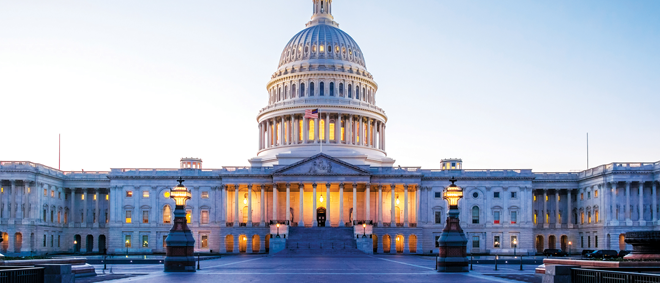The EU plans to step up controls on its home-grown technology. That is the short version.Continue Reading Protective Packaging: The EU’s Economic Security Package Changes the Landscape in Global Technology Controls

Timely Updates and Analysis on Key International Trade Law Issues

The EU plans to step up controls on its home-grown technology. That is the short version.Continue Reading Protective Packaging: The EU’s Economic Security Package Changes the Landscape in Global Technology Controls

On December 22, 2023, President Biden signed a new Executive Order (E.O. 14114) containing the latest round of sanctions against the Russian Federation. Shortly thereafter…
Continue Reading New Russia Sanctions Intensify Pressure on Banks Worldwide
The US just catapulted into being the world leader on regulating AI. Bypassing Congress, the White house issued an Executive Order focusing on safe, secure and trustworthy AI and laying out a national policy on AI. In stark contrast to the EU, which through the soon to be enacted AI Act is focused primarily on regulating uses of AI that are unacceptable or high risk, the Executive Order focuses primarily on the developers, the data they use and the tools they create. The goal is to ensure that AI systems are safe, secure, and trustworthy before companies make them public. It also focuses on protection of various groups including consumers, patients, students, workers and kids.Continue Reading White House Executive Order Ramps Up US Regulation of and Policy Toward AI

On August 9, 2023, President Biden issued an Executive Order (E.O.) ordering the issuance of outbound investment restrictions. This E.O. comes after nearly a year of anticipation (as we have documented on several occasions over the past year). This is the start of the reverse Committee on Foreign Investment in the United States (CFIUS) process that has been mostly speculation (and blog articles) until yesterday. In conjunction, the Treasury Department issued a press release, fact sheet, and Advance Notice of Proposed Rulemaking (ANPRM) seeking comments from the public on the proposed restrictions by September 28.Continue Reading Reverse CFIUS Unveiled: Focus on China, Semiconductors, Artificial Intelligence, and Quantum Computing

Key Takeaways:
Continue Reading U.S. Outbound Investment Restrictions Are Becoming a Reality

Key Takeaways

As we close out a wild year for international trade regulation,[1] after hearing much talk about outbound investment review mechanisms, we may see a final dramatic change before the ball drops. Since the summer, we have talked here about potential outbound investment reviews (reverse CFIUS? SUIFC?). And while there have been reports of potential action by both Congress and the Biden Administration on outbound investment, it is all the more possible to see executive action before a new Congress takes seat.Continue Reading Will We Ring in the New Year with Outbound Investment Restrictions?

On September 16, the United States Department of Justice (“DOJ”) released a report on the Role of Law Enforcement in Detecting, Investigating, and Prosecuting Criminal Activity Related to Digital Assets pursuant to President Biden’s Executive Order on Ensuring Responsible Development of Digital Assets (the “E.O.”). In its press release, the DOJ also announced the Criminal Division’s launch of the nationwide Digital Asset Coordinators Network (“DAC”) composed of designated federal prosecutors from U.S. Attorneys’ Offices nationwide to act as a go-to source for legal and technical matters relating to prosecutions of crimes involving digital assets.Continue Reading DOJ Issues Report on Efforts to Combat Digital Asset Criminal Activity and Announces Designated Prosecutors to Support

On September 15, President Biden signed the first-ever Executive Order (E.O.) on CFIUS – the Committee on Foreign Investment in the United States. While the E.O. does not substantively change CFIUS’s jurisdiction or the legal process, the Biden Administration provides some explicit guidance on certain national security priorities and factors for CFIUS to consider when evaluating transactions – focusing in on protecting U.S. technological advantage, supply chain resiliency, and sensitive data from U.S. adversaries. No doubt, the E.O. will impact certain cross-border transactions and investments as CFIUS develops strategies to incorporate the E.O. into practice and align national security priorities with other national security tools.Continue Reading First-Ever Executive Order on CFIUS Highlights Biden’s National Security Priorities

On Saturday, two actions put a stop, at least temporarily, to the U.S. shutdown of the popular social media apps WeChat and TikTok.
Continue Reading Executive Orders on Pause: WeChat and TikTok Bans Temporarily Suspended

The Takeaway: Severe restrictions on ByteDance’s Sale of TikTok should be a warning to media and tech companies with foreign ownership, particularly Chinese investment, to know your risks and mitigate them before the government comes knocking.
Continue Reading UPDATE: National Security Meets Teenage Dance Battles: U.S. Increases Pressure on ByteDance Sale of TikTok
By scrolling this page, clicking a link or continuing to browse our website, you consent to our use of cookies as described in our Cookie and Advertising Policy. If you do not wish to accept cookies from our website, or would like to stop cookies being stored on your device in the future, you can find out more and adjust your preferences here.